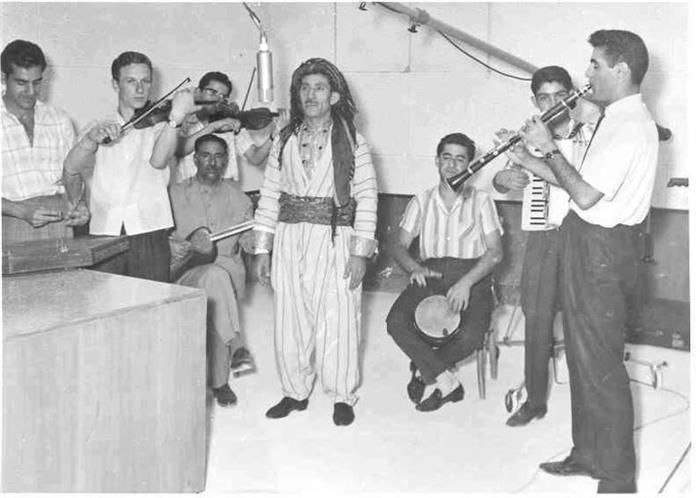A voice that is still alive, a voice that the Kurdish people preserve in their minds and hearts; the original voice of people and love. He had not studied a letter in school, nor had he studied with a music teacher, nor had he attended a singing art and music academy. He was an artist, a nightingale of Kurdistan, and the voice of Kurdish folklore. He was Hassan Zirak. Hassan Zirak (intelligent) was truly intelligent as his name suggests and preserved Kurdish folklore with his intelligence and voice.
Hassan Zirak was born on November 29, 1921, in Bokan, East part of Kurdistan. He started singing at a young age. He went to most of the Kurdistan cities to work and earn a living and wherever he went he quickly became famous for his voice.
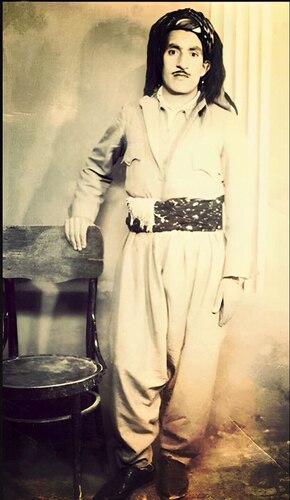
Hassan Zirak's life begins as follows; at the age of 12, he left his hometown and moved to Saqqez. At the age of 15, he returned to Bokan and soon went to work in Tehran and Tabriz. After a while, he moved to the southern part of Kurdistan and settled in Sulaimani in the Dargaz neighborhood, then moved to Kirkuk, and finally moved to Baghdad in 1953 and worked in the Kurdish section of Baghdad Radio, where he recorded dozens of old Kurdish songs.
Hassan Zirak, the owner of a pure voice, returned to Iran on August 14, 1959, at the request of Kurdish Radio in Tehran and worked as a Kurdish singer in Tehran. Sometimes he went to Tabriz and recorded songs on Tabriz Radio. He met Media Zandi at Voice of Tehran Radio, married, and had two children, Mahtab and Arazu.
In 1960, Hassan Zirak moved to Kermashan and recorded most of his songs on Kermashan Radio with the help of the great Kurdish artist Mojtaba Mirzadeh, and Hassan Zirak's magical voice spread more.
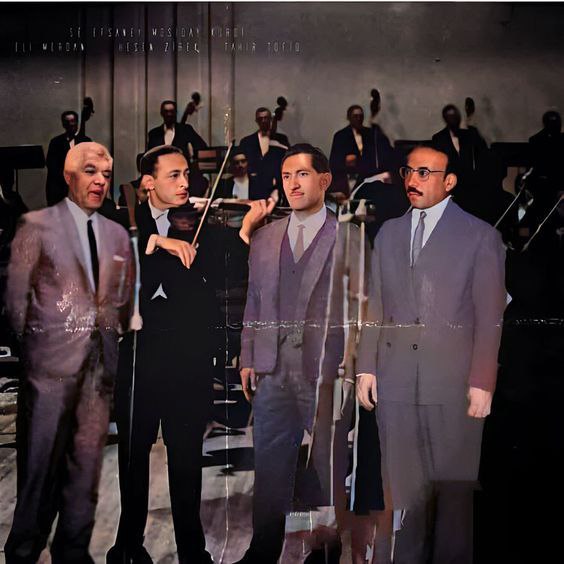
Hassan Zirak composed most of his songs in Sorani but occasionally sang in other Kurdish dialects, Persian, and Turkish languages; He knew some Arabic too. One of the most outstanding characteristics of Hassan Zirak is the collection of a treasure of Kurdish art and music that has been sung in his voice and used by Kurds and Kurdish artists. Hassan Zirak has visited most of the villages, regions, and cities of Kurdistan. He has seen the suffering of the Kurdish people with his eyes and revealed them. Hassan Zirak has preserved Kurdish authenticity and has sung for everyone. That is why the Kurdish people like Hassan Zirak's voice and listen to him.
Hassan Zirak spent most of his life in exile and he did not enjoy his life in Iran or Iraq. He was arrested in Baghdad and spent 18 months in an Iraqi prison, where he was tortured for nearly six months. Iran has also created many problems for Hassan Zirak and has not allowed him to work for Voice of Tehran Radio. Later, Iranian security agencies arrested and tortured Hassan Zirak.
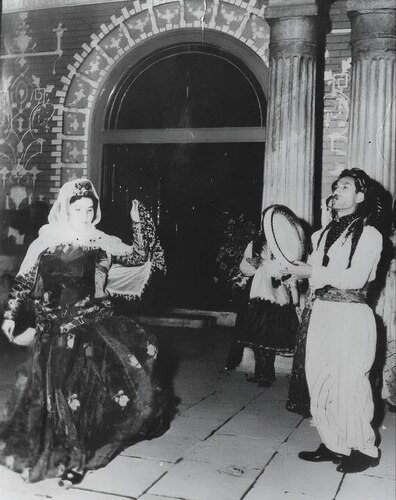
Hassan Zirak has cleverly translated foreign songs into Kurdish and composed them in an original Kurdish style. For example, the song "Ghanili Shui Shui" is one of the most famous songs of "Om Kulsum", he memorized it and sang it in Kurdish. The famous Hassan Zirak composed songs by himself and sang in Kurdish about anything anyone asked him to do.
Once Fatemeh Zargari, a singer who sang during the Shah's reign, had a concert in Tabriz and Hassan Zirak was in Tabriz at that time and went to the concert. Fatemeh Zargari starts with the song "Gulder Mani Gulder". The audience at the concert asked her to sing the song again. Fatemeh Zargari asked for rest for a while to repeat the song; Hassan Zirak saw this as a good opportunity and went to the resting place of the singer. She asks him who he is. He replied, “I am Hassan Zirak. I ask you to sing this song together in Azerbaijani and Kurdish.” The singer replied, “How can you mix Kurdish poetry with my song so quickly? Hassan Zirak was able to convince her anyway. Both came on stage and sang the song in Kurdish and Azerbaijani and the crowd applauded them.
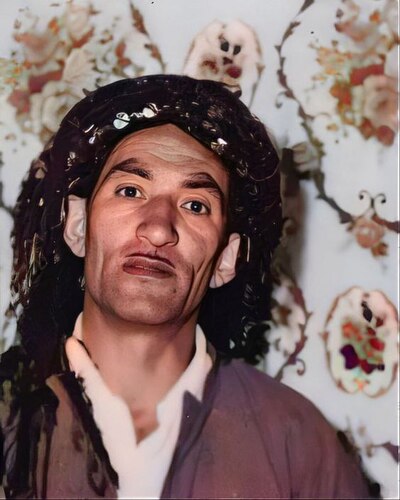
Hassan Zirak has sung many patriotic and national songs, and in his song entitled "Ay Nizam Boxom Nizam, I am the Soldier of Democrat (PDKI)" he mentioned the Kurdistan Republic. In his poem “Ay Nishtman”, he describes the beauty of Kurdistan and the Peshmerga. Hassan Zirak is one of the most struggling Kurdish singers, who has sung and recorded hundreds of songs on radio and television.
Hassan Zirak, the pure voice and treasure of Kurdish folk music, passed away on June 26, 1972, at the age of 51 in Bokan. He left an artistic archive for his nation, which has become a rich source of the original art of the Kurdish people.
Most of Hassan Zirak's works are preserved in the archives of the Kurdish, Arabic, and Persian Institutes. Before his death, Hassan Zirak made a will to be buried on Mount Nalashken, and wrote this poem on his gravestone:
Zirak, you have served art a lot
You spent your life for the sake of art
Your life was not without sadness a moment
But you lacked nothing in art

